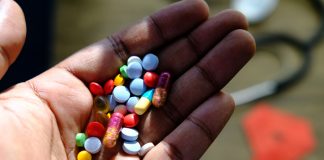
At least 18 billion U.S. dollars is needed to get the fight against malaria, tuberculosis and AIDS back on track from disruptions caused by the COVID-19 pandemic and accelerate progress toward the Sustainable Development Goal (SDG) 3 of “health and well-being for all”, a global health fund said on Wednesday.
The Geneva-based aid body said the $18 billion needed aims to reverse setbacks in its global efforts on disease testing, prevention and treatment caused by the pandemic.
The Global Fund and the presidents of the Democratic Republic of the Congo, Kenya, Rwanda, Senegal, and South Africa launched the Global Fund’s Seventh Replenishment campaign at a global health summit held virtually.
“We are extremely grateful to their Excellencies Presidents Kagame, Kenyatta, Ramaphosa, Sall, and Tshisekedi for co-hosting the high-level Preparatory Meeting to launch the Global Fund’s Seventh Replenishment,” emphasized Dr. Donald Kaberuka, Chair of the Global Fund Board.
“This demonstrates their commitment and leadership in the fight against the three epidemics within their respective countries and illustrates Africa’s strong engagement and partnership with the Global Fund. Today, they are calling on the world to join them in their determination to reach this ambitious goal to end HIV, TB and malaria by 2030 and build strong national health systems to respond to emerging pandemics.”
In the 20 years since the Global Fund was created, the partnership has saved 44 million lives and cut the death toll from the three diseases by 40%. But the Global Fund’s Results Report revealed significant progress has been lost because of the COVID-19 pandemic and global resource needs have increased. This is why the Global Fund funding needs are higher than in 2019 for the Sixth Replenishment.
“In the face of the catastrophic impact of COVID-19 on the fight against HIV, TB and malaria, the choice is stark: We either increase funding, or we abandon hope of finally defeating these epidemics by 2030,” said Peter Sands, Executive Director of the Global Fund.
“We must increase support to countries to build more resilient, sustainable and inclusive systems for health. This is crucial for ending HIV, TB and malaria, defeating COVID-19 and protecting people from future infectious disease threats around the world.”
With 20 years’ experience bringing together world leaders, communities, civil society, health workers and the private sector to fight the world’s deadliest pandemics, the Global Fund partnership is uniquely positioned to support countries to fight HIV, TB and malaria, strengthen their systems for health and prepare for future pandemics.
According to Lady Roslyn Morauta, Vice-Chair of the Global Fund Board, when the Global Fund was created 20 years ago, HIV, TB and malaria seemed unbeatable but “we have proven that with science, adequate resources and effective global and local collaboration, we can force even the deadliest diseases into retreat”.
She said she was calling on the entire partnership to mobilize to increase financial resources to fight and defeat the three diseases.
According to the Global Fund, a successful Replenishment would allow the partnership to save 20 million lives between 2024 and 2026, reducing the mortality rate by 64% across the three diseases by 2026, relative to 2020 levels. The Fund will also be able to avert more than 450 million infections or cases, reducing the incidence rate by 58% across the three diseases by 2026, relative to 2020 levels. Another positive to the drawn from the Fund is that the death toll across the three diseases will reduce to 950,000 in 2026, down from 2.4 million in 2020, and from 4 million in 2005.

